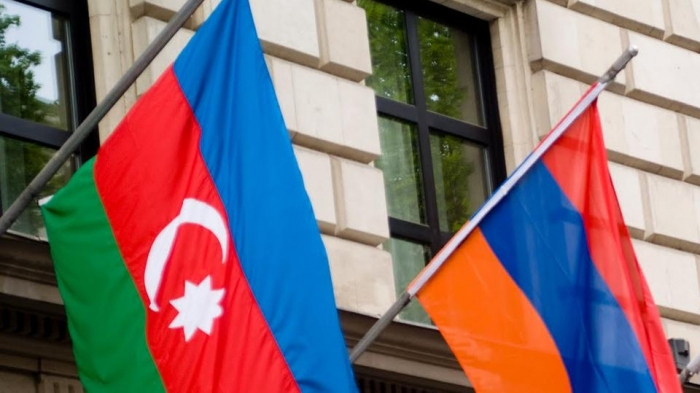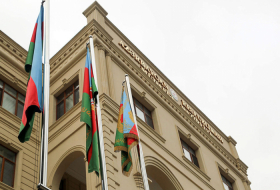Dismissing the rumors circulated by Armenia and its Western supporters regarding alleged plans by Azerbaijan to invade Armenia’s sovereign territory, President Aliyev reiterated that his country has no such intentions. In an interview with local TV channels on January 8, the Azerbaijani leader emphasized the lack of basis for such an attack and denied any ongoing preparations. President Aliyev urged Armenia to engage in bilateral diplomatic negotiations to address remaining disputes, including those related to the delimitation process and the reopening of transportation links.
However, the core message from the President was distorted by various radical groups in Armenia, fueling fearmongering campaigns that propagated the idea of Azerbaijan’s potential invasion and called for military and political support from Western powers. The situation between Armenia and Azerbaijan has been negatively affected also by the militarization of Armenia through the acquisition of military supplies from countries such as France and India. Additionally, Armenia has reneged on its commitments under agreements signed since the conclusion of the 44-day War, a.k.a. the Second Karabakh War, including the trilateral statement of November 10, 2020. This situation is reminiscent of the years between 1994 and 2020 – during which the Armenian governments imitated peace talks and nullified all efforts to resolve the conflict diplomatically.
In December 2023, in an international forum with experts from multiple countries, the Azerbaijani leader stressed that the present situation offers a historic chance for normalization of the Armenia-Azerbaijan relations and opening of a new peaceful chapter between the two countries. Indeed, the fundamental problem between the two nations, the disputes over the Karabakh region of Azerbaijan, has been resolved in line with the norms and principles of international law. Certainly, it would have been more ideal, if they could have reached a settlement peacefully and with no bloodshed. But, unfortunately, the governments of Armenia prior to the Second Karabakh War and the separatist leaders prior to the one-day war in September 2023 refused to engage in meaningful negotiations with Baku. Nevertheless, it was possible to resolve the conflict and open a new era in the region thanks to the efforts of the Azerbaijani government. President Aliyev will not be remembered as only the leader who won the Second Karabakh War and restored his country’s territorial integrity, but also as a leader who created unique conditions for the establishment of peace between the two South Caucasian countries.
During the 20 years of presidency, he had made multiple contributions to peace and prosperity of the South Caucasus in general, not only of his country. The energy and connectivity projects that had been realized over the past two decades have brought about better living standards for both Georgia and Azerbaijan. The Baku-Tbilisi-Ceyhan oil pipeline, the Baku-Tbilisi-Kars railway, the Southern Gas Corridor are the landmark projects in this context. Therefore, it is no surprise that the governments of Azerbaijan and Georgia have acknowledged extremely important strategic value of these relations and committed to further develop them.
Unfortunately, the occupation of the Karabakh region and seven adjacent districts prevented the formulation of these projects in a trilateral format which would have involved Armenia and contribute to economic development of this country. The refusal of the Armenian governments to peacefully return the occupied territories resulted in the self-isolation of this country. Armenia’s borders with Azerbaijan and Türkiye have been closed since the early 1990s and this country has had no role in the above-mentioned giant energy and connectivity projects. The resolution of the conflict is therefore creating a unique chance for Armenia, and as such for regional integration in the South Caucasus.
The successful outcome of Azerbaijan’s efforts against the separatists and the restoration of the country's territorial integrity played a positive role in advancing this diplomatic process. President Aliyev, a foremost champion and proponent of regional integration, emphatically highlighted this stance in his address to the nation following his country’s military triumph over separatists in the Karabakh region on September 20, 2023: “We propose that the future of South Caucasus countries should be based on peace, tranquility and development. …[T]he day is not far when Azerbaijan and Armenia will settle the issues between them, sign a peace treaty, and countries of the South Caucasus start working on future cooperation in a trilateral format.”
This approach is supported by the Georgian Prime Minister Irakli Garibashvili who, in his press conference with President Aliyev following the latter’s visit to Tbilisi on October 8, 2023 stated that “Our future should be peaceful and stable, and all three countries of the South Caucasus should address regional issues themselves.” President Aliyev expressed his endorsement of this approach, affirming that his country views Georgia also as a more suitable venue for the Armenia-Azerbaijan peace talks. “Several countries and also some international organizations are trying to support the normalization process between Armenia and Azerbaijan today. We welcome that. If it is not lop-sided and biased, of course, we welcome any mediation and assistance. However, in my opinion, taking into account both the historical relations and the geographical factor, the most correct option in this field would certainly be Georgia,” he said.
Indeed, the resolution of the long-standing conflict over the Karabakh region creates a unique chance for Armenia to break free from self-isolation and actively participate in the economic development of the South Caucasus. President Aliyev’s visionary leadership, not only in securing territorial integrity but also in fostering regional integration through energy and connectivity projects, sets the stage for a more prosperous future. The beneficiaries of the new security situation and economic integration in the region will be not only Georgians and Azerbaijanis, but also Armenians.
The mutual recognition of territorial integrity between Armenia and Azerbaijan lays a robust foundation for such a stability and cooperation in the region. As the specter of conflict dissipates, both nations can now focus on building a trilateral format for collaboration in the South Caucasus, transcending historical animosities. This moment calls for Armenia to seize the opportunity for reconciliation, economic prosperity, and a shared commitment to a peaceful South Caucasus. The onus is on the leadership in Yerevan to engage in meaningful negotiations, honoring past agreements, and contributing to the establishment of a new era of cooperation in the region.
AzVision.az
More about:
















































